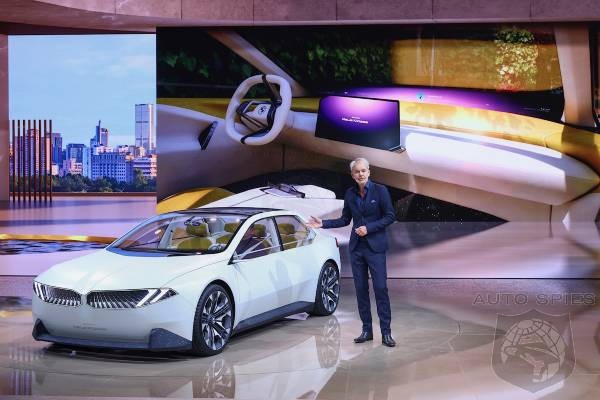From Autobahn Kings To Electric Pawns: Germany's Car Empire Starting To CRACK in China

Once upon a time in the vast expanse of the automotive world, the German car manufacturers were like the rock stars of the industry, cruising through the Chinese market with the confidence of heavy metal legends at a folk festival. Their vehicles, epitomes of dynamic luxury and sporting heritage, were revered like prized relics, each car a testament to precision engineering and an almost mystical allure. Brands like BMW, Mercedes-Benz, and Volkswagen were untouchable, or so they thought.
However, as the plot often thickens in any good tale, enter the electric vehicle (EV) revolution. Like a bolt from the blue, the market dynamics shifted, and the German automotive giants found themselves in a scenario reminiscent of a sci-fi movie where the earthlings' superior technology suddenly becomes obsolete. China, with its burgeoning EV market, had been quietly amassing a fleet of electric vehicles that were not only numerous but also increasingly sophisticated.
The Chinese EV market, propelled by government incentives, environmental consciousness, and a voracious appetite for innovation, began to outpace the traditional automotive sectors. While the Germans were tuning their engines for the perfect roar, the Chinese were busy ensuring their electric vehicles were silent but deadly efficient. Here, the mystique and heritage of German cars didn't quite hold the same charm. What mattered was battery life, charging infrastructure, and, surprisingly, affordability.
The irony was thick enough to slice with an engineer’s ruler. The Germans had inadvertently given the Chinese the blueprint to challenge them. By entering the EV market late, with models that didn't resonate with the tech-savvy, price-conscious Chinese consumer, the Germans found themselves outmaneuvered. Their luxury branding and performance credentials, which had been their ace in conventional automotive markets, were less of a draw in a segment where practicality and innovation in electric technology were king.
Now, while the German giants are still formidable, they're no longer the unchallenged titans in this new electric landscape. They're like seasoned boxers who've stepped into a ring where the rules have changed, and they're facing off against a new generation of fighters who've been training with the future in mind.
Thus, the Germans, who once thought they were untouchable in China, are now learning the hard lesson that in the EV market, it's not just about the roar under the hood but how quietly and efficiently you can move forward. And as they scramble to catch up, they might just find that the race isn't always won by the fastest, but by those who adapt the quickest to the silent hum of change.
And by listening to the BS woke politicians and media they started destroying themselves part by part.
Copyright 2024 AutoSpies.com, LLC